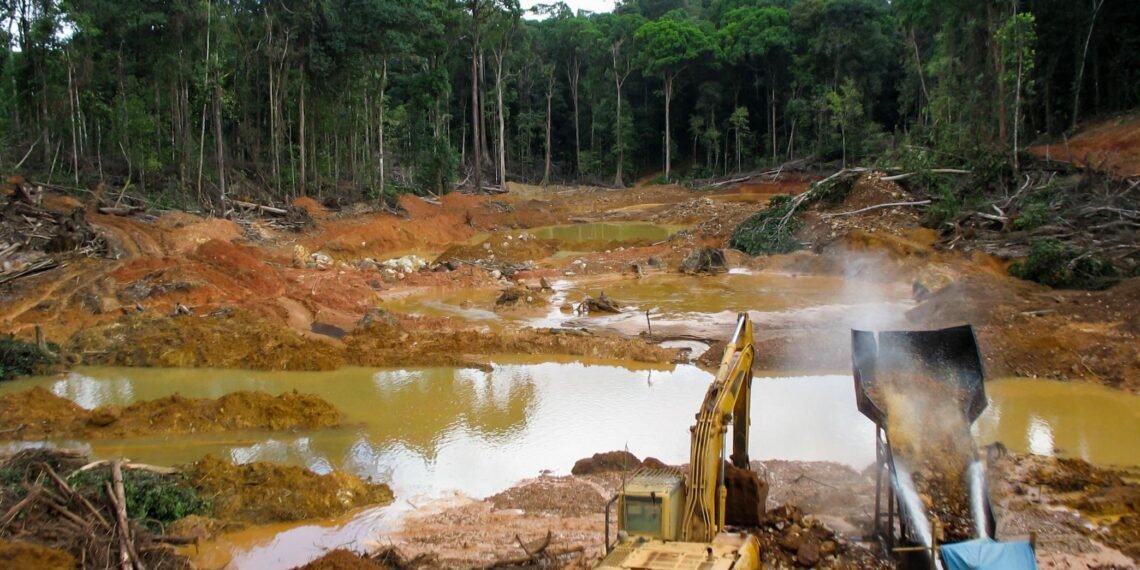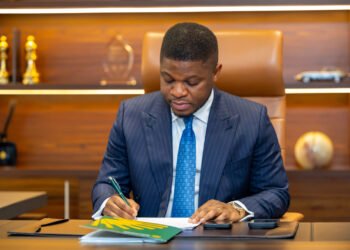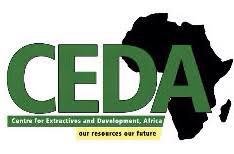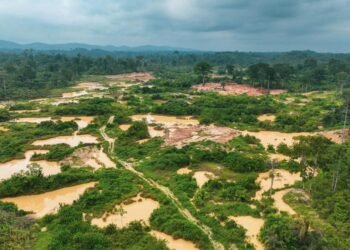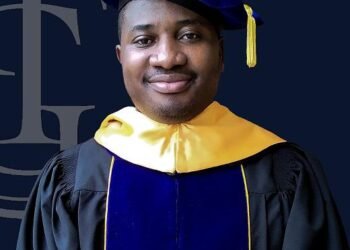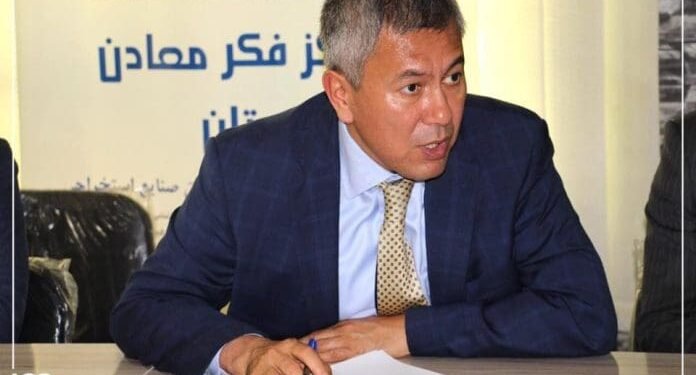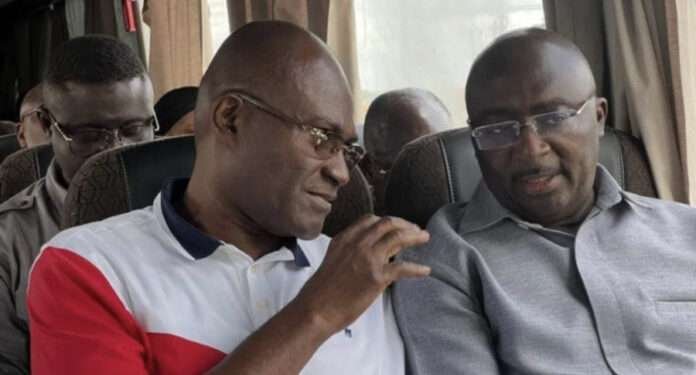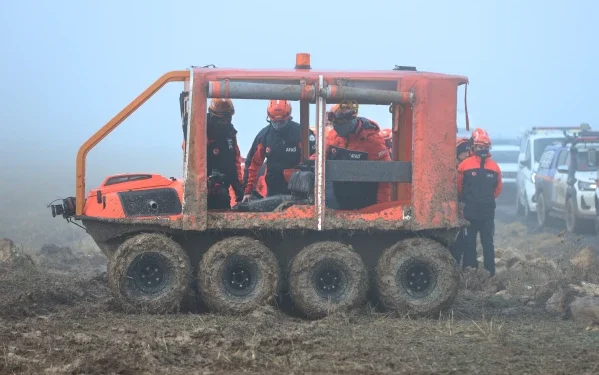The Responsible Cooperative Mining and Skills Development Programme (rCOMSDEP) has stepped up its community sensitisation campaign in the Western Region with visits to mining communities in Tarkwa-Nsuaem and Prestea Huni Valley, engaging residents on sustainable mining practices and policy reforms.
In Bankyim, the Coordinator of rCOMSDEP, Engineer Frank Pedro Asare, led his team to sensitise miners on the importance of prioritising safety and environmental standards in their operations.
“If we want to mine and still preserve our lives and environment, then health, safety, and the environment must be key.”
Engineer Frank Pedro Asare, Coordinator of rCOMSDEP
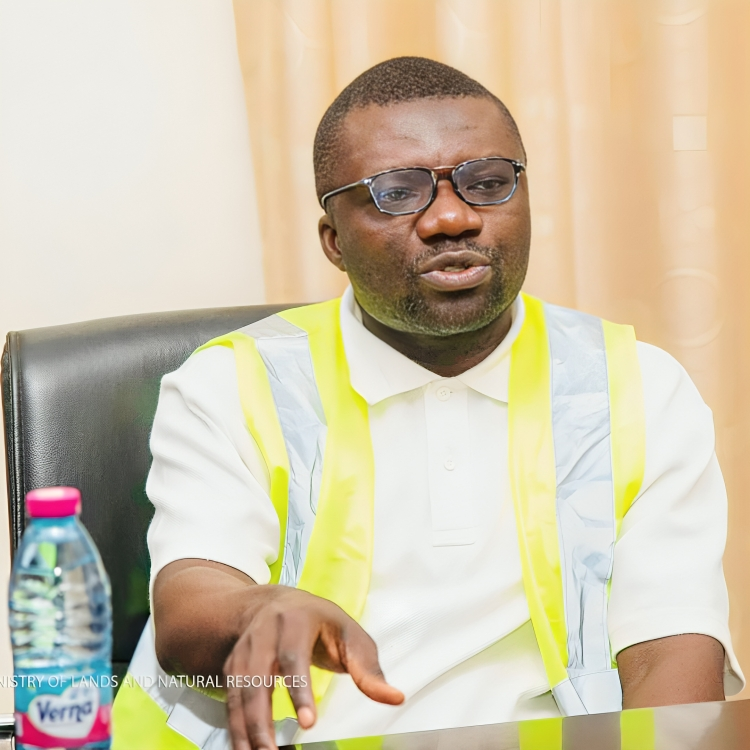
He reminded miners that while gold contributes significantly to Ghana’s economy, irresponsible practices such as unregulated washing of ore in water bodies pose severe risks to human health, ecosystems, and future livelihoods.
At Badukrom in Tarkwa-Nsuaem, residents appealed to government to facilitate the release of an abandoned mining pit by Goldfields Ghana for community cooperative mining.
According to them, access to such lands would help reduce unemployment while ensuring that locals directly benefit from their natural resources. “We are ready to take up responsible mining if given the opportunity,” one resident told the rCOMSDEP team.
Licensing Regime Under Review
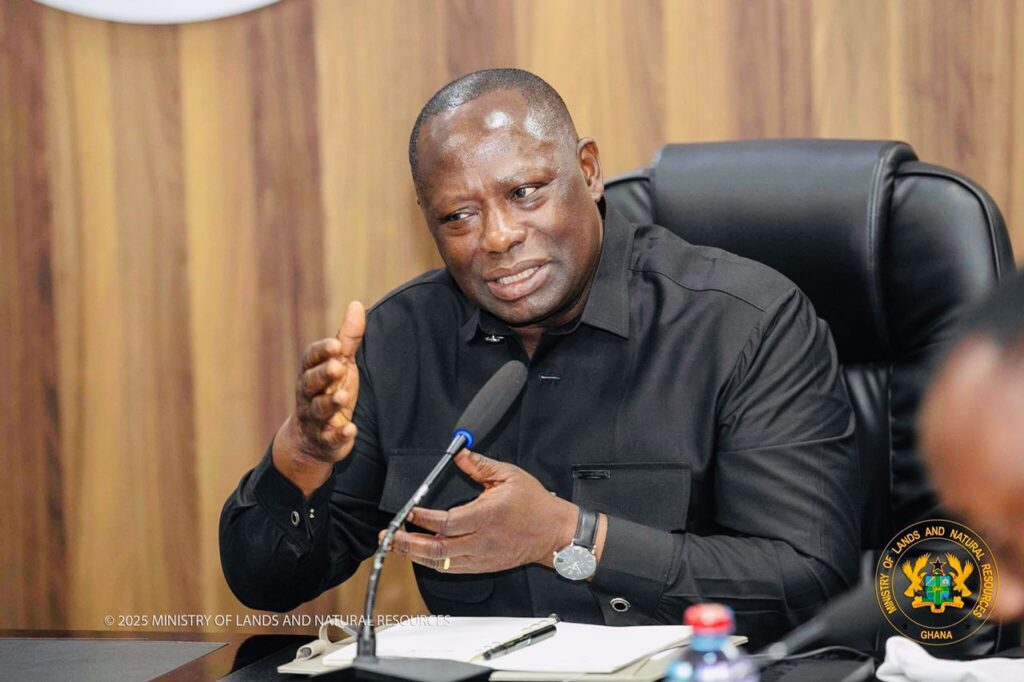
Addressing concerns raised by several communities, Engineer Asare revealed that the government was actively considering reforms to the mining licensing framework.
“Currently, mining licences can run for up to 30 years.
“We are considering reforms to reduce it to 15 years so that communities can also have access to mine responsibly.”
Engineer Frank Pedro Asare, Coordinator of rCOMSDEP
The proposal, according to him, is part of ongoing efforts to strike a balance between large-scale mining operations and the livelihoods of artisanal and small-scale miners.
By shortening licence durations, the government hopes to increase opportunities for community-led initiatives under programmes such as rCOMSDEP.
During visits to the Brahabobom mining site in Tarkwa-Nsuaem and the Apinto community mining site in Prestea Huni Valley, the rCOMSDEP team identified one of the pressing challenges facing artisanal miners: the absence of modern processing plants.
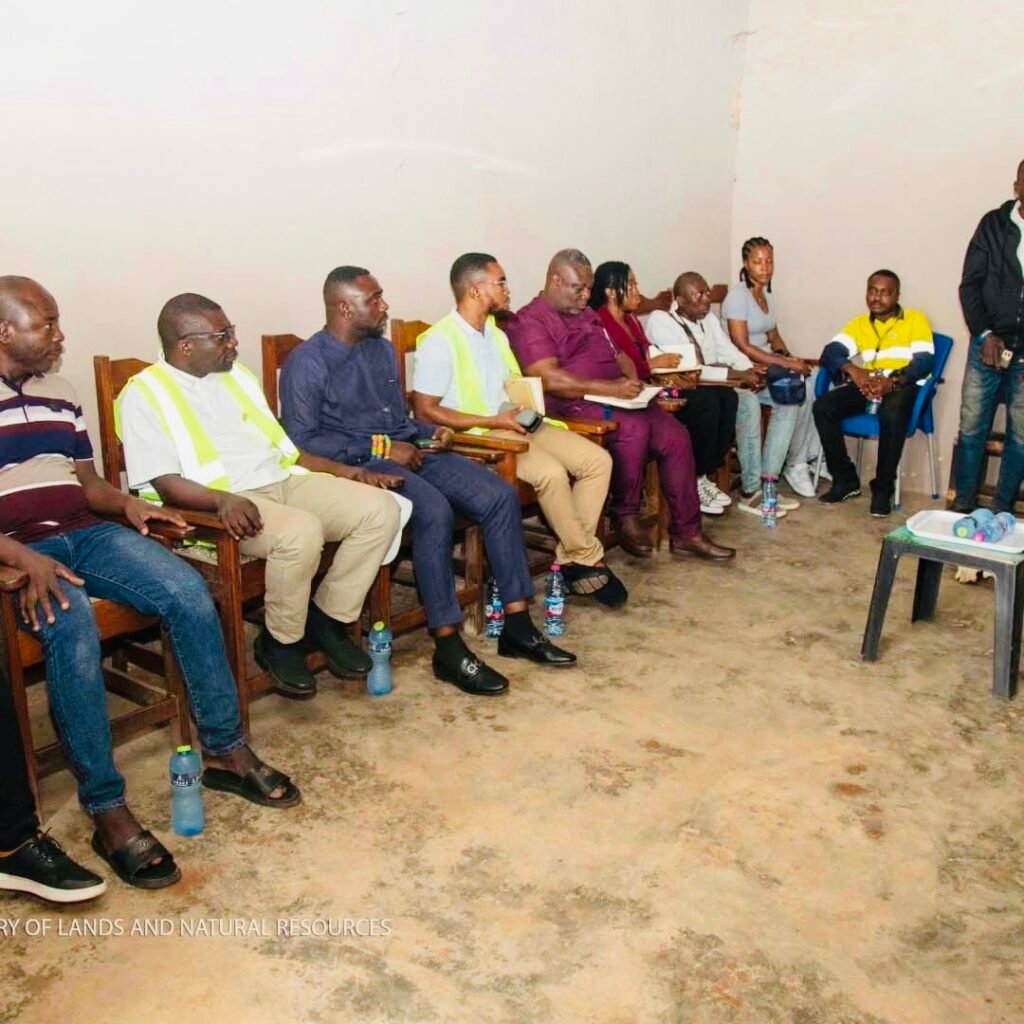
Engineer Asare observed that the current practice of miners washing ore in scattered pits and streams not only reduces efficiency but also worsens water pollution in surrounding communities.
“There is the need to have a mining plant on the site.
“That will enable the ore to be washed and gold extracted in a responsible way, rather than washing at different places where water ends up in streams and pollutes them.”
Engineer Frank Pedro Asare, Coordinator of rCOMSDEP
Local miners and workers at the sites welcomed this recommendation, noting that access to proper processing facilities would improve yields while also ensuring that operations remain environmentally sustainable.
Another miner explained that the lack of infrastructure forces them to rely on crude methods. “If we get a proper plant here, it will help us mine in a way that does not destroy our streams and will also give us better gold recovery,” he said.
Towards Sustainable Community Mining

The rCOMSDEP initiative, launched by the Ministry of Lands and Natural Resources, is designed to address long-standing challenges in Ghana’s small-scale mining sector.
It promotes cooperative mining models, provides training for miners, and integrates environmental rehabilitation into mining operations.
By focusing on community ownership, rCOMSDEP aims to reduce illegal mining (galamsey), restore degraded lands, and create alternative livelihoods in agriculture, vocational skills, and entrepreneurship.
The Western Region, being one of Ghana’s most resource-rich areas, has been at the center of debates around mining’s impact on the environment and livelihoods.
For residents in Tarkwa-Nsuaem and Prestea Huni Valley, the sensitisation drive offered renewed hope that mining could be conducted responsibly while improving socio-economic conditions.
The sensitisation exercise underscores the government’s commitment to building a mining sector that is inclusive, sustainable, and environmentally responsible.
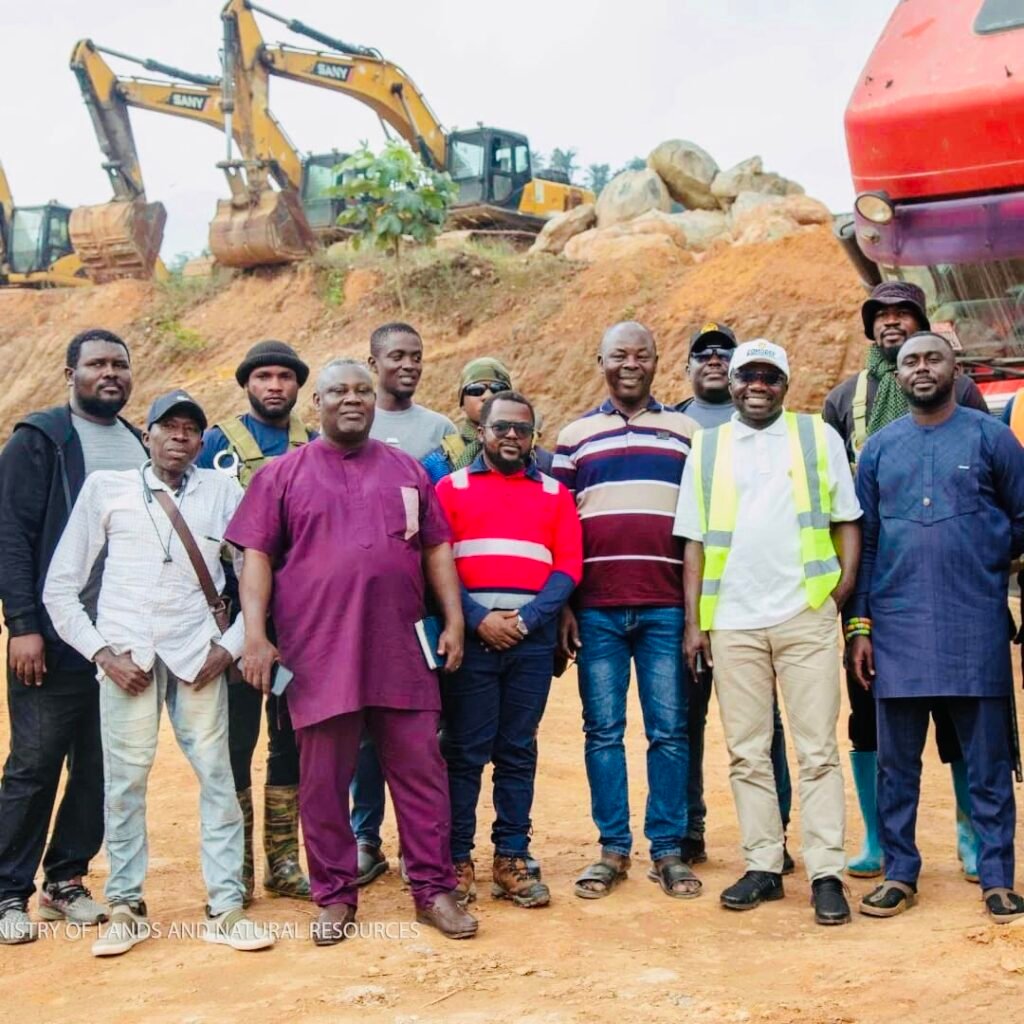
Officials say future phases of rCOMSDEP will include the provision of centralized processing plants, stricter monitoring of mining concessions, and mandatory community development agreements.
“What rCOMSDEP represents is a shift from destructive practices to responsible community-led mining.
“We must protect our environment even as we mine to improve livelihoods.”
Engineer Frank Pedro Asare, Coordinator of rCOMSDEP
For communities like Badukrom and Bankyim, however, the message is clear: responsible mining offers a pathway to both prosperity and sustainability.
With continued engagement, investment in infrastructure, and policy reforms, rCOMSDEP hopes to transform artisanal mining from a source of conflict and degradation into a model of community empowerment and environmental stewardship.
READ ALSO: A Smart Move to Save the Cedi – Women in Forex Ghana Prez Hails BoG Directive

